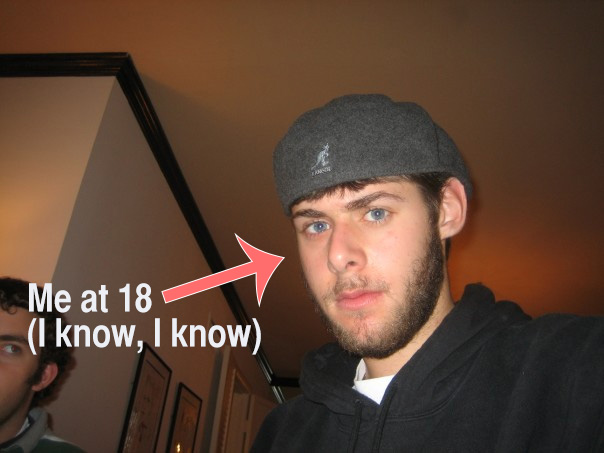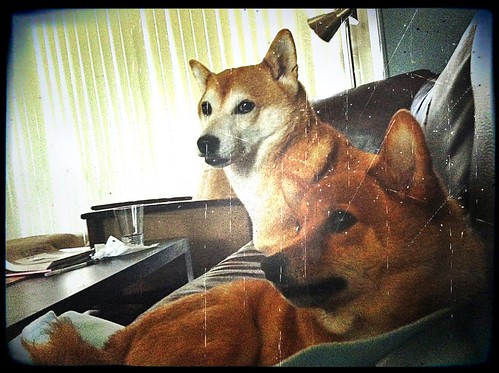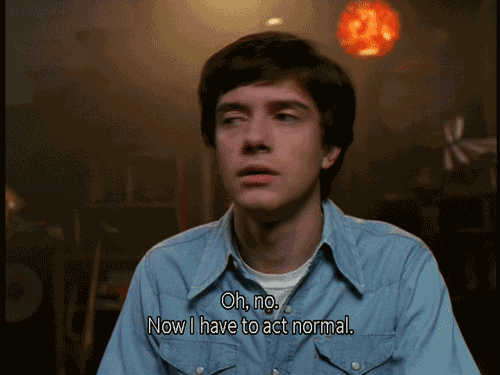
I started classes at the University of Missouri eight years ago this month. Which got my me thinking: If I was starting college this year, what advice would 26-year-old me give my 18-year-old counterpart?
So, 18-year-old Dan, here’s the thing:
College is 100% about experiences. You should do stuff because you CAN.
Go to concerts on Tuesday nights because you can. Join that campus improv group because you can. Take that all-night road trip because you can.
And yes, do stuff even when your friends don’t want to. You’ll meet new people along the way.
College is a time to try stuff you’d otherwise never try. You’re never going to have more free time to learn something new.
Basically, you’re going to go to 15 hours of class a week, and spend another 10-15 hours (maybe) doing work for those classes, which leaves you with an insane amount of free time to do whatever the hell you want.
Like, now is the time to learn an instrument. Or learn to take photos. Or learn to make awesome stuff.
No, your GPA doesn’t matter. As soon as you leave college, it’s as relevant as your SAT score.
So shoot for GPA that starts with a 3, but don’t worry too much about grades. Or your major. Most of your friends will end up doing something entirely unrelated to their majors.
Take classes that challenge you. Take classes with professors you like.
And take advantage of office hours. Just go in and talk to the professor for a few minutes each month. They’re smart people, and you’ll actually enjoy the conversation. (Yes, really.)
There aren’t a lot of things you shouldn’t do at college, but here are two: Don’t sleep so much — there is no human reason to sleep as much as you’re going to want to. And don’t be so messy — make your damn bed. Nobody wants to hang out at a messy apartment.
And that’s about it. Everything else is on the table. (Well, don’t do anything horribly illegal, but you already knew that.)
Experiences matter, and people matter, and that’s it. The rest of the stuff they tell you about os mostly rules that you don’t need to pay much attention to. The people you’ll come to admire don’t really care about the rules.
Go and find good people. The people you meet in college are going to be around for a long time. You are going to want good people in your life.
Good people will make your college experience better. They will make your life better. They will make you happy. Find lots and lots of time for these people.
But when you screw up, especially to them, apologize. And forgive them when they mess up. This matters more than you think.
One more don’t, actually: Don’t be a jerk. You’re young, and you think you know it all, and you’re going to be a jerk sometimes. Try not to be an asshole — it comes back around.
A few more things: Reach out to people you admire in “the real world” — people love helping college kids. They actually read your emails and take your calls.
And a quick follow up — especially a hand-written note — means far more than you can possibly imagine.
Create stuff. Build stuff. Even if it’s dumb.
The people who build stuff in college tend to go on to build stuff in the real world. This is not a coincidence.
And one finally little thing: This is not the best four years of your life. It isn’t. But if you do it right, it is the first four years of what can be an amazing life.
Know this: College is an wonderful place. You have so many resources around you, and so many amazing people around you. Everything you need to start something amazing — a project, a company, a life — is right here.
You will not come out of college fully formed, and that’s okay. In fact, it’s encouraged. You’re a work in progress. You’re there to learn and to try stuff. Try it all.
And don’t forget: You are never too young do something great. NEVER. Don’t let anyone tell you otherwise.
Welcome to college. Enjoy it. It goes by just as fast as they say.







